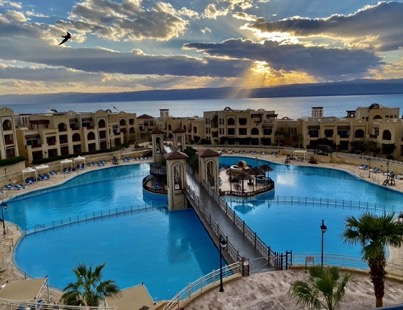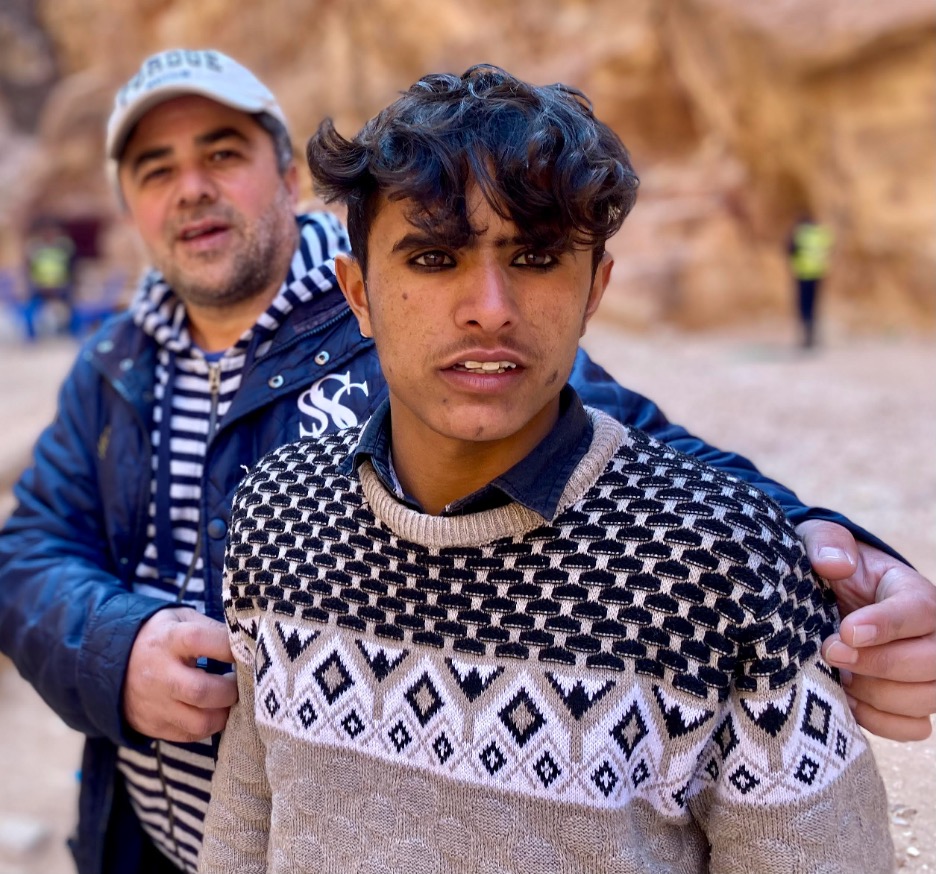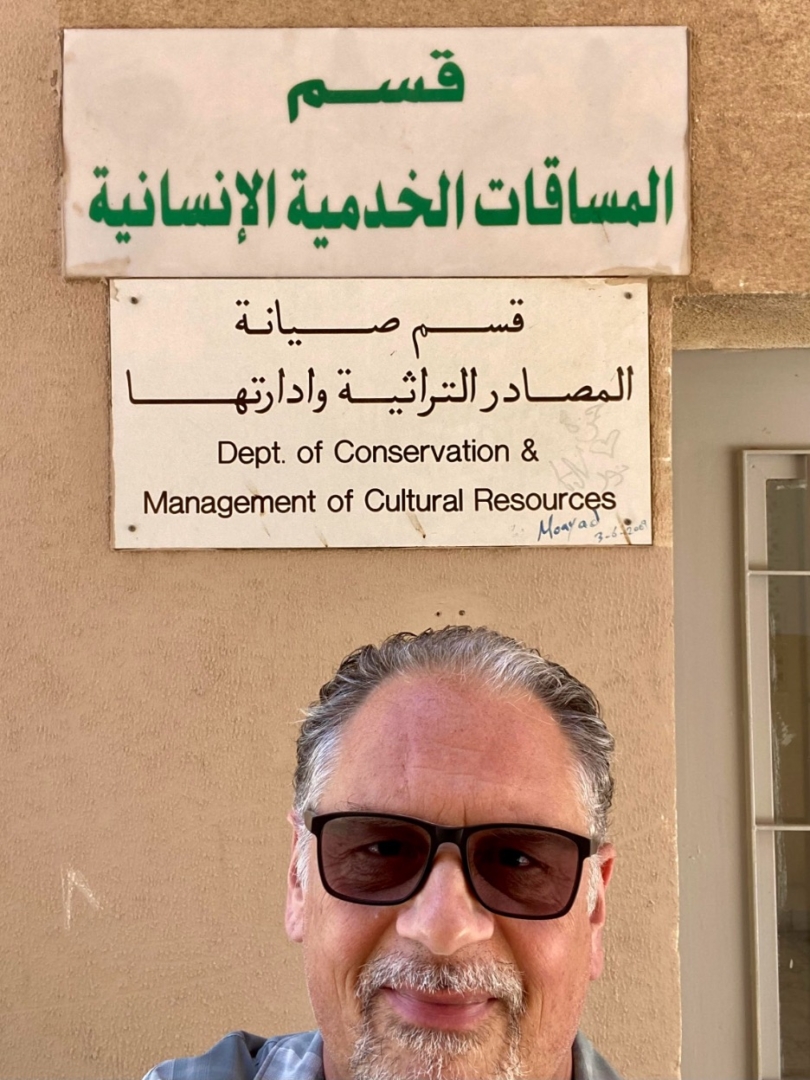Anthropology Faculty Reflects on Fulbright Experience in Jordan

Anthropology faculty Jesse Dizard spent approximately 10 months as a visiting professor at Yarmouk University in Irbid, Jordan as a Fulbright Scholar.
I went to the Hashemite Kingdom of Jordan with a Fulbright Scholarship (2021–2022) knowing relatively little about the country or the culture. I had lived in other Middle Eastern countries including Israel and had long wanted to see the stunning ruins at Petra, snorkel among the tropical fish and corals near the Red Sea port of Aqaba, and explore the labyrinthine alleyways of Jordan’s capital Amman (ancient Greek Philadelphia). But unlike Lawrence of Arabia, I never had the chance to cross the Jordan Valley from Palestine heading east toward Syria and Iraq.
What finally compelled me to seek a Fulbright Scholarship to Jordan was the stark reality of the country’s circumstances. I had to see for myself how ordinary Jordanian people were coping with the impacts of the region’s current and looming crises.
This small nation of roughly 10 million has long been of critical value to American diplomacy in the region. For example, the largest USAID mission in the world is in Jordan, and the American Embassy in Amman is among the 10 largest in the world. Jordan’s geostrategic importance cannot be overstated—its borders touch Saudi Arabia in the south, Israel to the west, Iraq to the east, and Syria to the north. Nor can the precariousness of Jordan’s political, economic, and cultural institutions be overestimated, threatened as they are by the enormous influx of refugees from neighboring conflicts in Syria, Lebanon, Israel, and Iraq, not to mention the dwindling supply of natural resources available to the population. In terms of potable water alone, under current conditions and if nothing changes, some estimates give the kingdom another decade at best.
Indeed, if one needs an example of a potential tinderbox, one ought to look no further than Jordan.
My plan was simple. I would join the faculty in the College of Archaeology and Anthropology at Yarmouk University as a visiting professor, offer lectures and seminars on subjects that I teach here at Chico State, and seek to understand the prevailing attitudes towards the scarcity of natural resources such as arable land, fresh water, and electricity.

About one week before my scheduled departure in August 2021, I received a memorandum from the Fulbright Commission in Amman instructing me to find another university, one in the capital city, Amman. For the past two years there had been no Fulbright Scholars in Jordan, and the American Embassy wanted the first cohort since the start of the COVID-19 pandemic to remain within the capital’s city limits due to concerns for US citizens’ safety.
Unfortunately, Yarmouk University where I had been first assigned is about 80 kilometers to the north in the city of Irbid, a mere 12 miles from the Syrian border. But it is also the only university in Jordan with an anthropology department.
I managed to find a last-minute opportunity at the University of Jordan in Amman, packed my bags, and departed, even though I was ill at ease and not sure how to proceed with this change.
A week or two after my arrival in the country, I was delighted to receive another memo from the Fulbright Commission indicating that Yarmouk University’s dean of the College of Archaeology and Anthropology had somehow prevailed upon the Fulbright Commission and the US Embassy to persuade them to allow me to teach at Yarmouk and live in Irbid instead of Amman [shout out here to College of Behavioral and Social Sciences Dean Eddie Vela without whose support these words could not have been composed!].
Irbid’s origins date to early Bronze Age fortifications upon which subsequent settlement grew. Known as Arabella, “Bride of the North,” Irbid controlled extensive trade, both east-west and north-south across its broad and fertile plateau that produced excellent fruit, olives, and wines. It was one of the semi-autonomous cities in the Roman Decapolis. The neighboring cities of Gadara, Dera’a, and Qweilbeh cooperated for over 100 years (from 90–210 CE) to create one of the most significant hydrological systems of the era. They succeeded in building over 100 miles of rock-hewn tunnels with almost 3,000 access points to supply one another with fresh spring water 2,000 years ago.
In 1961, the population of Irbid totaled roughly 50,000. Today, only 60 years later, Irbid is home to approximately 2 million people and is Jordan’s second largest metropolitan area, boasting the highest population density of any city in the Kingdom. It is unclear at this time how much longer the existing municipal solid waste management system can continue to operate at sufficient capacity to manage this explosive growth.

For approximately 10 months, I taught several seminars to graduate students of anthropology and history, and team-taught large undergraduate lecture courses on “Schools of Anthropological Thought,” “Gender and Culture,” and “General Introduction to Anthropology.” During holiday breaks and on the weekends, I packed in many of the adventures I had long dreamed of between invitations from colleagues and other friends to visit or join them on excursions to places they wanted me to see.
I found my students to be respectful, shy, and exceedingly polite. And my colleagues at the university were deeply serious intellectuals, committed to their craft and generous with their time. Several invited me to collaborate with them on their research, and as a result I helped submit numerous grant proposals, drafted a variety of reports for the United Nations High Commission on Refugees, and even completed an article on tribal law and honor killings in Jordan that has been submitted for publication.
As I readied to return to Chico State this fall, I thought about how different this year would be for us all, not just me. The pandemic has changed many things about our society, exposing shortcomings, and exacerbating problems, yet also reinforcing some of the more admirable aspects of our intellectual culture here. I intend to carry forward the commitment to leaving the world at least a little better than I found it, in particular by doing all I can to ensure that Muslim students on our campus feel safe and welcome.
In short, and thanks to a tenacious dean as well as amazing staff at the Fulbright Commission, I met many people in and around Irbid, regardless of the anxieties of pandemics, the ambiguities of language, and the vicissitudes of daily life. I even spent an afternoon in colloquy with the late King Hussein’s brother, Prince Hassan bin Talal. Some of these people became close confidants and friends.
Without exception, everyone I met treated me with remarkable kindness and genuine respect. Despite the swords of Damocles above everyone’s head, I felt safer there than I ever have anywhere in the world.


